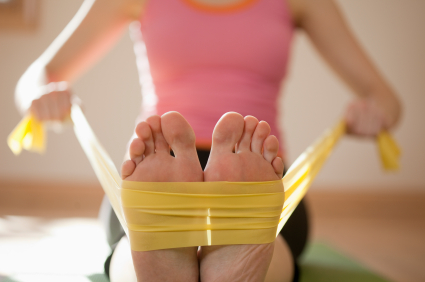Did cavemen have it right? Proponents of the Paleo (short for Paleolithic) diet say that our old cavemen ancestors were healthy, strong and free of today’s diseases, largely due to their diet of fruits, vegetables, meats and fat. Since legumes, dairy and grains were not eaten by the early hunter gatherers, these foods are specifically restricted on the Paleo diet. The diet also advises followers to remove sugar and salt from their diet, and to eat organic meat from grass-fed animals.
The theory behind the Paleo way is that genetically, we have not adapted to the grain rich diet eaten today and that this is the cause behind diseases like diabetes, obesity and heart disease. So those following the Paleo diet eat a fairly low amount of carbohydrates, moderate to high amounts of fat (from animal and plant sources) and moderate amounts of protein. The exact proportions of the diet differ between followers and variants of the diet itself. There is no exact goal for fruits, vegetables, meat or even calories. In fact, you can eat as much as you want. Paleo’s basic recommendation is to emphasize plants and properly raised meat while avoiding carbohydrate packed foods. The one aspect that brings skeptical questions from dietitians and doctors is the particularly high amount of fat allowed. Experts typically think eating a high fat diet puts a person at higher risk for many diseases, namely obesity. There is research, however, promoting the Paleo diet that shows slight improvements in some areas of health.
Currently, research behind the Paleo diet does back some of its claims at health. In short-term studies where people began eating a paleolithic diet, they experienced lower blood pressure and better blood sugar control. Other studies show the Paleo diet causing moderate weight loss, small improvements in cholesterol and beneficial effects on circulation. Advocates of the diet also talk about feeling increased energy, improved mental stamina and overall better bodily function.
With research and anecdotal evidence for the Paleo diet, some people are wondering about other low-carb diets (Atkins, South Beach, etc.), whether grains really are bad for the body and if the Paleo diet is how we are supposed to eat. The truth is, some of the healthiest cultures of people today have diets filled with grains, dairy and other rich sources of carbohydrates (Mediterranean, French, Chinese). Actually, without plentiful carbs and some dairy, it can be quite hard to get all of your body’s needed vitamins and minerals – specifically calcium, niacin, riboflavin and thiamine. Whole grains are especially great as sources of essential nutrients, antioxidants and soluble fiber. Dairy too, provides a low-fat protein source and is a staple for vegetarians. This isn’t to say you couldn’t be healthy following the Paleo diet, but because there are no definite terms specifying what and how much the diet includes, it is up for interpretation.
While the Paleo diet and other low carbohydrate eating plans cause weight loss in most people, much of this is attributed to the generally low calorie content of such diets. Since carbohydrates are so abundant in meals, reducing or eliminating them takes away most of our calories, and reducing calories will lead to weight loss. There is some research to back Paleo’s ability to improve health parameters like cholesterol or blood pressure, but any diet based in fruits and vegetables has been shown to improve overall health. There’s much more evidence advising us to eat as many fruits and vegetables as we can, than evidence directing to eat as our ancestors did.
Talk to Paleo followers and you’ll quickly find out that the diet can be expensive, hard to stick to and make eating out extremely difficult. Many people follow Paleo for a month or two, and then revert back to more manageable eating patterns. So while it worked well for our ancient ancestors, it is simply not as practical for today’s lifestyles. In the end, the Paleo diet just reinforces what we already know: eating a diet full of plants with little processed food will better our health. So while the Paleo diet may not be unhealthy, today’s nutritional knowledge doesn’t fully support it as a sole means of obtaining the nutrients our bodies need. If the Paleolithic diet leads you to eat more fruits and vegetables, then go for it. Just realize that you may need to supplement your diet with other sources of nutrition.
 Top 3 Ways to Take Care of Your Muscles
Top 3 Ways to Take Care of Your Muscles